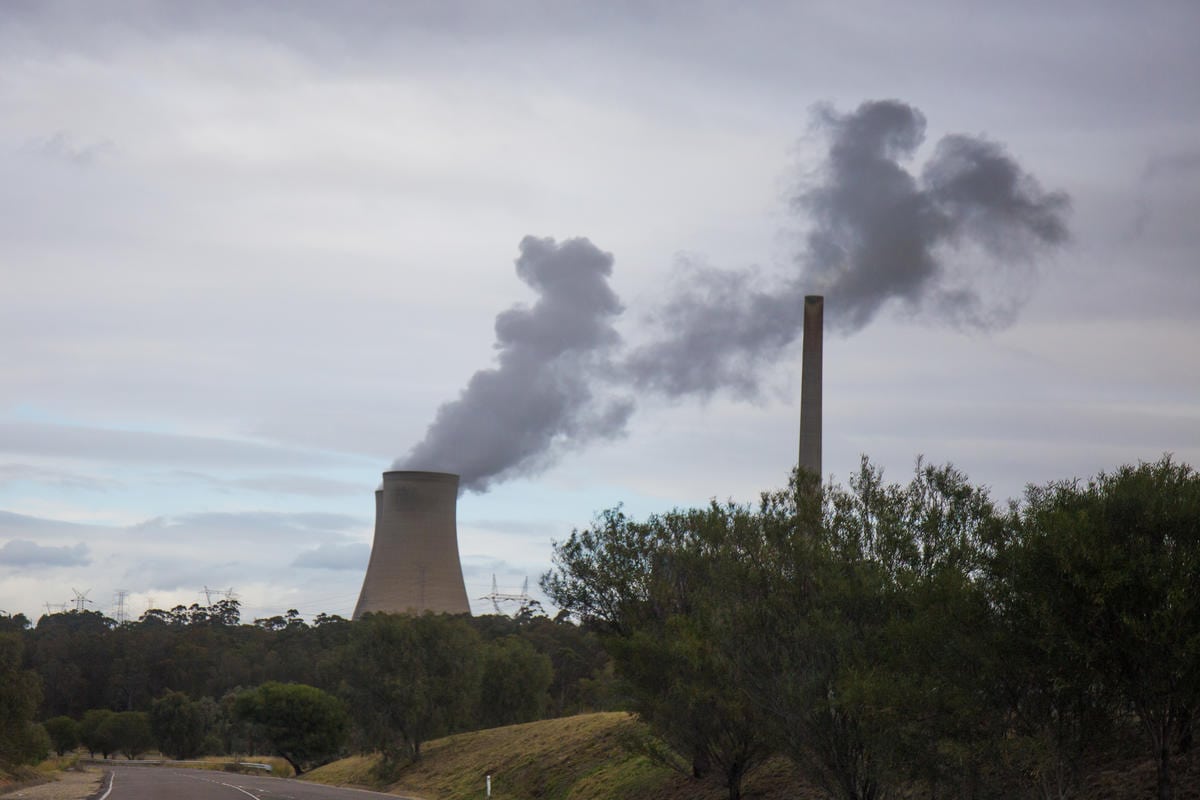The news that Energy Australia would close the Yallourn coal-burning power station in 2028, four years ahead of schedule, drew a chorus of golf claps from the environmental movement when announced last week. But it would have caused an uproar had the truth of the apparent dirty deal between the power company and the Victorian Government not been kept secret.

Liddell is a coal fired power station near Muswellbrook in New South Wales, Australia. It was opened in 1971 and is due to shut down by the end of 2022.
The details of the deal struck between the State Government and Energy Australia are sketchy, but involve a “safety net” from the state government, guaranteeing a minimum power price for Yallourn’s output over the next seven years no matter how low power prices fall as renewable energy hits its stride.
In a nutshell, this would leave taxpayers footing the bill for the country’s dirtiest power station to keep polluting the skies above the Latrobe Valley and the lungs of thousands of people below.
As things stand, over the next seven years millions of dollars of Victorian taxpayer’s money could flow to a private, foreign-owned company operating coal-fired power stations so old and inefficient that they can barely compete today, let alone in coming years when more cheap,safe wind and solar power flows into the grid.
The Victorian Government, which has established itself as a leader in the renewable energy transition, could, and should do better. Coal-burning power stations have no place in Victoria’s future-facing energy grid. The fact that coal-burning power stations must rely on subsidies and safety nets to keep running spells that out.
But it’s not just the Victorian State Government that needs to clean up its act. As the transition from dirty coal to clean energy accelerates, notably in the absence of a coherent national policy to phase out coal-burning power stations, the big energy companies need to step up or face increasing pressure from the public, their customers and investors.
AGL, Origin and Energy Australia – the three biggest private energy players – are all facing cold, hard reality, with tanking share prices, mounting competition from renewable energy and a rapid shift in public sentiment that’s seeing them increasingly painted as the “bad guys” as scrutiny of their role as major carbon emitters grows.
AGL owns and operates coal-burning power station Loy Yang A – just across the valley from the Yallourn station. Loy Yang A, responsible for a whopping 10 per cent of Australia’s electricity emissions, is currently slated to run until 2048, a fairytale timeline that even the most wide-eyed and optimistic analyst would have difficulty believing in.
AGL, which holds the dubious honour of being Australia’s biggest climate polluter with more than double the emissions of Energy Australia, is currently weighing up what to do about the future direction of its business. This includes the reality of how long it can drag out the closure of Loy Yang A.
The 2048 closure timeline goes far beyond the safe limit for coal closures, and puts Victorians at significantly higher risk of catastrophic climate impacts such as extreme bushfires, heatwaves and flooding. It also sits at odds with the exciting new renewable direction set by the State Government.
The dirty Yallourn deal is a template that AGL and the Victorian Government must not follow for Loy Yang A.
Instead, AGL and the Victorian State Government must plan to close this station well ahead of 2030 and fund renewable energy projects and worker transition programs. This would be a better use of taxpayers money than propping up Energy Australia and AGL to run their coal-burning assets into the ground.
The conversation about coal closures must be had, and it must be honest and accountable. It’s time for the Victorian Government and the big energy companies to come clean to taxpayers on the real costs of coal, and work together on the solution.
By Greenpeace Australia Pacific Senior Campaigner Glenn Walker

